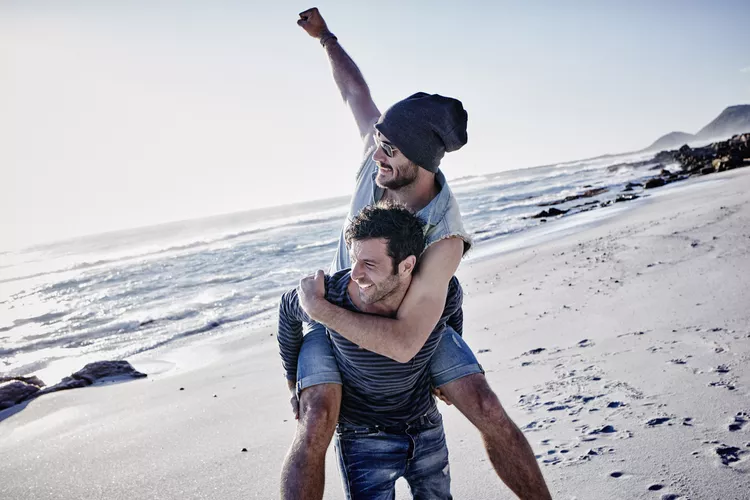Content Summary
Safe LGBT Travel to Africa: A Comprehensive Guide
The African continent offers a plethora of rewarding travel destinations for individuals of any sexual orientation. Unfortunately, gay and lesbian travelers need to conduct thorough research before planning their trip, as homosexuality is still considered a criminal offense in some African countries; in certain areas, it can even be punishable by death.
Where is Being Gay Illegal?
The first step toward a safe vacation in Africa is to research your chosen destination carefully. You must find out the laws regarding homosexuality and whether or not they are enforced. Homosexuality is illegal in several countries, including:
- Algeria
- Botswana
- Burundi
- Cameroon
- Chad
- Comoros
- Egypt (although not officially illegal, LGBTI persons and allies are often detained or imprisoned on “debauchery” charges)
- Eritrea
- Ethiopia
- Gambia
- Ghana (men only)
- Guinea
- Kenya
- Liberia
- Libya
- Malawi
- Mauritania
- Mauritius (men only)
- Morocco
- Namibia (men only)
- Nigeria
- Senegal
- Sierra Leone (men only)
- Somalia
- Somaliland
- South Sudan
- Sudan
- Swaziland (men only)
- Tanzania
- Togo
- Tunisia
- Uganda
- Zambia
- Zimbabwe (men only)
If convicted, punishment can range from minor fines to life imprisonment (notably in Gambia, Tanzania, Uganda, and Sierra Leone, although enforcement may vary). This map offers more information about anti-gay laws and penalties.
Where is Being Gay Punishable by Death?
In some African countries, homosexuality may carry the death penalty, including:
- Mauritania
- Nigeria (in certain Sharia law states only)
- Somalia
- Somaliland
- Sudan
South Africa: An LGBTI Haven
For many LGBTI travelers, South Africa is the premier hassle-free destination. It is the only African nation to recognize same-sex marriage and the first globally to outlaw discrimination based on sexual orientation. Cities like Cape Town are known for their openness, boasting numerous gay-friendly bars, restaurants, and hotels. However, South Africa offers more than just sexual tolerance; it also features cosmopolitan cities, rich cultural heritage, and breathtaking natural landscapes.
Tips for Safe LGBTI Travel to Africa
It is crucial to remember that, regardless of sexual orientation, African culture tends to be conservative (especially in Islamic nations). Public displays of affection, whether from straight or gay couples, can often be frowned upon. Although hand-holding between male friends may be more common than in Western culture, discretion is advised. Consequently, as long as you’re willing to avoid public displays of affection, gay and lesbian travelers can navigate Africa safely, even in countries with laws against homosexuality.
Many online forums allow travelers to connect with local LGBTI communities before their visit. These resources can provide valuable insights into the realities of life for gays and lesbians in specific countries, along with information on the best gay-friendly accommodations and services. However, it is essential to exercise caution when meeting strangers, particularly in economically disadvantaged regions where scams can be prevalent.
Moreover, HIV is widespread in Africa, so all visitors—regardless of orientation—should prioritize practicing safe sex.
Gay and Lesbian Tours to Africa
If the thought of independent travel seems overwhelming, consider engaging a tour through an LGBTI-friendly Africa travel agency. Heritage Tours is known for its comprehensive tolerance policy, which includes all races, religions, and sexual orientations. They offer customized itineraries for multiple destinations in Southern and East Africa. Similarly, the CEO of Rhino Africa serves as the International Gay and Lesbian Travel Association’s Ambassador to South Africa and leads Out2Africa, which specializes in luxurious, gay-friendly travel in over 20 African nations.
OUT Adventures is another reputable company specializing in gay tours and cruises worldwide, including journeys to Morocco, Kenya, and South Africa. Their itineraries in Morocco and Kenya provide the chance to explore North and East Africa safely, despite local laws against homosexuality, thanks to their in-country expertise.
Resources for LGBTI Travelers
Regardless of whether you travel independently or join a guided tour, several websites are invaluable resources to check before your journey. The International Gay and Lesbian Travel Association (IGLTA) serves as a comprehensive hub for information on LGBTI travel globally, including Africa. Their listings of African destinations encompass places like Tanzania, Uganda, Mauritius, Zimbabwe, and the Seychelles. The GlobalGayz website is another excellent resource that compiles travel articles, news stories, and personal experiences related to gay travel across various African countries.
For travelers heading to Cape Town, widely regarded as the most gay-friendly city in Africa, the Gay Cape Town Guide offers vital information about the best beaches, bars, and hotels that the Mother City has to offer.




